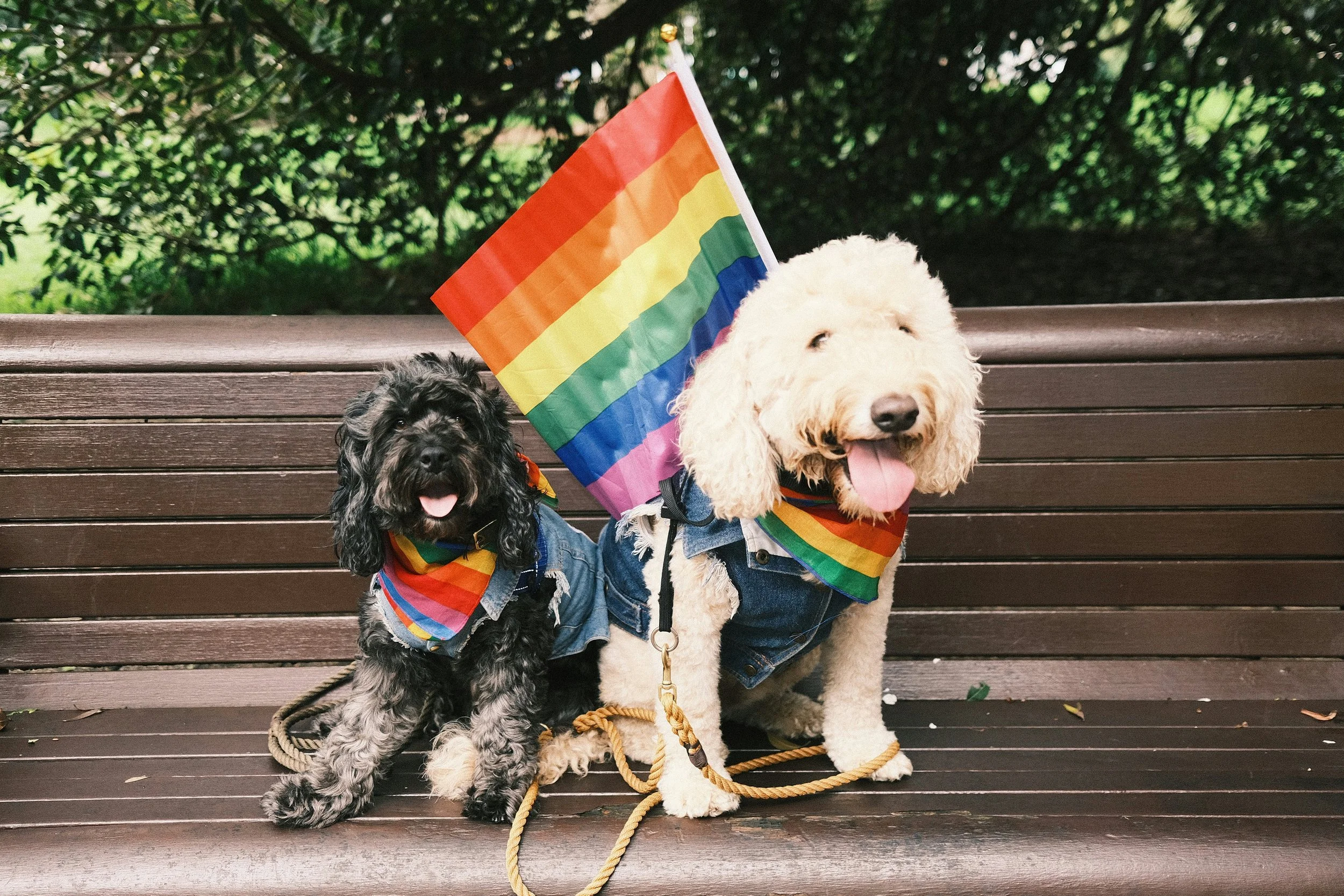“Our Dogs Aren’t Just Pets — They’re Chosen Family.”
Why Queer People Love Their Pets — And Why It Matters
For generations, LGBTQ+ individuals have formed deep, emotional bonds with animals — particularly dogs and cats — that go far beyond standard pet ownership. These bonds aren’t just anecdotal; they’ve been studied, documented, and celebrated in sociology, psychology, and queer culture.
During Pride Month, we often honor love in all its forms — romantic, familial, and platonic. But one often overlooked kind of love is the quiet, healing, unwavering devotion between LGBTQ+ people and their pets.
🧠 The Research Behind It
Studies consistently show that LGBTQ+ pet owners report higher emotional closeness to their animals than heterosexual pet owners. Why?
According to research highlighted in the Journal of Homosexuality and cited in sociologist Dr. Jennifer Evans’ studies, pets serve a unique role in LGBTQ+ lives because of:
Chosen family structures
Emotional safety
Stigma buffering
Mental health support
🧬 1. Chosen Families & Companionship
For many queer individuals — especially those estranged from biological relatives — pets become chosen family. Dogs, cats, and other animals offer consistent, nonjudgmental companionship in a world that can be unpredictable or even hostile.
This isn’t just poetic — it’s documented. According to a study conducted by the ASPCA and Cornell University, LGBTQ+ people are more likely to view pets as core family members, not just pets.
“My dog was the first living being that ever saw me as me,” said one trans participant in a 2018 study on pet attachment and identity affirmation.
💬 2. Mental Health and Emotional Regulation
LGBTQ+ individuals face elevated rates of depression, anxiety, and suicidal ideation due to discrimination, internalized stigma, and lack of access to affirming care.
Pets offer grounding. According to the Human Animal Bond Research Institute (HABRI):
74% of LGBTQ+ pet owners say their pet helps them manage stress
63% say pets give them a reason to keep going during difficult times
Many report pets as a critical tool for managing gender dysphoria and social anxiety
🏡 3. A Safe Space in an Unsafe World
The LGBTQ+ experience often includes rejection, isolation, or outright hostility. Pets provide a kind of emotional shelter— a safe space where one is never misgendered, judged, or silenced.
In the height of the AIDS crisis, dogs and cats often remained with gay men who had been abandoned by family or community. Some reports documented hospice caregivers noting how the presence of a beloved pet brought more comfort than medication.
“When the world turned its back on them, their pets stayed,” wrote historian Eric Marcus in Making Gay History.
🐾 4. A Symbol of Freedom and Care
For some LGBTQ+ folks, owning a pet is an act of reclaiming agency — choosing who to love, how to love, and how to build family on their own terms.
In queer and trans circles, animals often serve as emotional mirrors, offering:
Caretaking routines that promote stability
Daily rituals that reinforce identity and structure
A sense of purpose that’s essential during recovery, transition, or trauma healing
🏳️🌈 5. Cultural Visibility and Advocacy
In recent years, LGBTQ+ pet parents have become increasingly visible in pop culture, social media, and advocacy work. From queer-owned pet brands to LGBTQ+ pet influencers, dogs and cats are front and center in stories of pride, self-love, and inclusion.
Some shelters and rescues now run Pride-themed adoption events and even offer queer-inclusive volunteer spaces, recognizing the unique relationship between LGBTQ+ people and companion animals.
